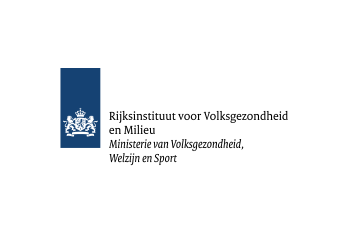During a clinical appointment, you discuss your health with a doctor and/or nurse. Sometimes you go there with a complaint or a question, and sometimes you ‘just’ go for a checkup. This can take some getting used to at first, but it becomes routine after a while.
In brief:
- Usually you have an appointment with the HIV practitioner and/or HIV counsellor twice a year. This is called a clinical appointment.
- You have a blood test before the appointment.
- If you want to, you can take someone with you to the appointment.
- Take control of your treatment; prepare for the appointment and ask questions.
- Let your HIV doctor or HIV nurse know if you feel there wasn't enough time to ask questions, or if you weren’t happy with the consultation.
Blood test first
Before your appointment, you will have to go to the blood testing centre for a blood test. This will often be one or two weeks before your appointment, because it takes a while before blood test results are known. You discuss this later on with your HIV doctor. You may also have to give a urine sample. This is to see if your kidneys are still functioning properly. The blood values indicate many things: how your liver or kidneys are doing, the number of CD4 cells, the viral load (the amount of virus in your blood), cholesterol and other blood fats. Read more here about what is measured in your blood test.
Specialised HIV doctor
The HIV treating physician is your specialized HIV doctor. An HIV doctor is a specialist in both internal and infectious diseases. This doctor will discuss your blood results and medical details with you, and go through your overall health with you.
HIV nurse
After the appointment with the HIV doctor, which is mostly medical, you can make an appointment with an HIV nurse. You can talk about a lot more than just the blood results and the medical details with your HIV nurse. Lots of people with HIV trust their HIV nurse more than their HIV doctor. An HIV nurse usually has more time for you, and is interested in your individual problems and personal questions. Whether it's medical or sexual issues, self-confidence or depression, empowerment, problems at home or at work, information about treatment and diagnosis, referral to other healthcare providers such as the dermatologist or psychologist, or simply when you need a sympathetic ear - the HIV nurse is there for you.
Prepare well for the appointment
It's good to make a list of questions before you go for the appointment, especially the first few times, but also if there are complications or side effects later. For instance, are you still happy with your medication, or do you want to switch? You always have the right to ask to switch to another medication, especially if you are experiencing side effects – however small – that are unacceptable to you.
An appointmenttends to go in the direction you want it to if you prepare well, although sometimes you may be surprised by the results of the blood test. It helps if you bring someone along with you. They often remember different details than you do. You can ask him or her later on for details of the conversation with your doctor or nurse. This helps you to not feel so alone.
Because of the coronavirus, hospital appointments are sometimes changed to telephone or video appointments. Think about whether this works for you. If you feel you need a face-to-face conversation at this point, report that to the HIV clinic. Click here for tips on telephone or video appointments.
pdf Download a checklist (1.40 MB) for the clinical appointment. Or read the possible questions during a consultation below:
You can use an app to help you prepare for your appointment. For instance, the Happi App. This app can be downloaded from the Google Play Store and the Apple Store. You answer questions in the app to see how you score on certain topics (e.g. mental health). This kind of app gives you a better insight into your health, and together with your doctor or nurse you can determine whether there are issues that need extra attention.
Deciding together
Throughout your treatment, your HIV doctor and HIV nurse must inform you thoroughly and discuss all options with you. They are legally obliged to do so under the terms of the WGBO (Medical Treatment Contracts Act). Based on this information, you can continue to make the choice that suits you best.
The basic assumption is that the HIV doctor has discussed treatment with you, that you understand what it entails and you have given permission for it. This is called informed consent.
'Deciding together' must be an integral part of the clinical appointment with your doctor. This also applies to the conversations with your HIV nurse. They must continue to inform you about your treatment, about possible side effects of your medication and about medical developments. Not only within your HIV treatment centre, but also about treatment options by fellow doctors in other centres. Don't forget, you can always go back on an earlier decision about the approach to your treatment. And take the time to voice your doubts and ask for a second opinion if you feel the need.
Right to an interpreter
Do you speak the Dutch language? You must understand each other properly at the appointment. All aspects of your health and medication use must be clearly explained. You should be able to ask questions and discuss doubts about the consequences of your treatment, and to ask other personal questions.
Ask your doctor or nurse to arrange a professional interpreter to talk about your treatment. The interpreter can explain to you in your own language what exactly is involved, so you can decide.
Not enough time for all your questions?
An appointmentat the HIV clinic usually takes 20 to 30 minutes, and sometimes only lasts 10 to 15 minutes. An appointmentis usually only once every six months, and sometimes only once a year. The appointment is often too short, is actually always too short. There is often something else you intended to bring up, that you haven't been able to. Many people with HIV are discouraged by this; there is no time or attention for their real problems. You can ask your HIV nurse for clarification after the consultation. Let them know if you haven't had time to ask all your questions.
Not satisfied with your appointment?
“I get along fine with the HIV doctor I have now. We understand each other. I didn’t like the previous doctor at all, or he didn’t like me; my stubbornness irritated him. We soon started arguing about how to interpret the blood test results and what to do with my HIV medication. Yes, perhaps I am quite difficult. After the appointment, I went to the HIV nurse to pour my heart out. Together we decided it would be beter to choose another doctor to treat me. That's what happened and I am happy about it.”
René, 29 years old, gay man with HIV.
If you don't get along with your HIV doctor or HIV nurse, you can ask for another doctor or nurse, or for a second opinion. If you are not happy with how the spointment went, make sure you say so. It's about your health. The HIV treatment centre can come up with a solution to your problem. Always take the initiative when there are problems. Read more here on complaints about healthcare.
Privacy is important
Confidentiality is important, especially with a condition like HIV. The HIV treatment centre has a duty to respect your privacy. Given the stigma, prejudice and other possible adverse effects, a lot of people with HIV worry about others finding out they have HIV. An appointmentmust take place with the door closed and locked, so that no one other than the doctor and you can hear the conversation. After all, the appointment could include intimate details. Privacy is also essential with referrals to other doctors and healthcare providers, as is passing on personal information about your health over the phone, or during a blood test at the outpatient clinic. If the healthcare providers are too flippant about your privacy, you should definitely mention it. You can also file an official complaint with the hospital if you feel your concerns have not been heard.
Sometimes the doctor treating you will suggest having a new intern present at the appointment. This is because the intern is apprenticed to the doctor to learn the intricacies of the profession in practice. You can object to this if you would prefer the appointment to take place in private – e.g. because you want to discuss intimate problems with the doctor. Your HIV doctor must respect your wish for privacy. The intern will then go off to do something else in another room. That's how it should be. It's about your privacy.









